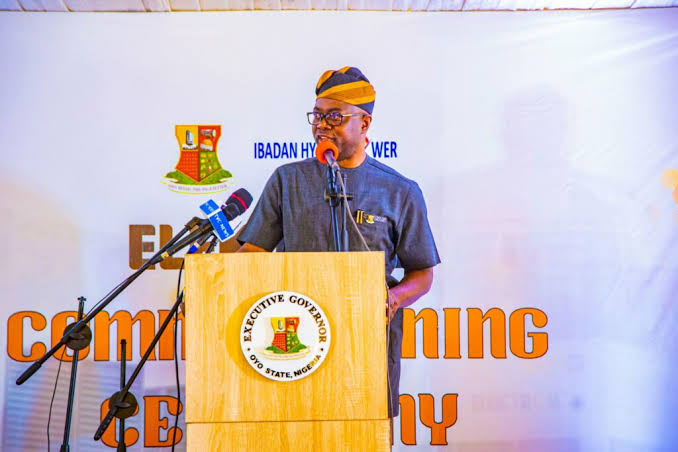
By Balqees Onadiran
A thriving society is easily identifiable by its strong healthcare system, which ensures that citizens remain healthy, productive, and capable of contributing to national development. In Nigeria, however, the healthcare system is often inadequate, worsened by the increasing brain drain in the health sector. Therefore, in a country where healthcare infrastructure is insufficient, it becomes both a necessity and a duty to invest in a functional and accessible system.
Millions of Nigerians, particularly in rural areas, struggle to access basic medical services due to poorly equipped facilities, inadequate staffing, and insufficient funding. A well-structured healthcare system reduces mortality rates, improves life expectancy, and bolsters economic growth by keeping the workforce healthy. As former United Nations Secretary-General Kofi Annan once said, “Health is the foundation of development. No country can be economically and socially stable when large numbers of its people are sick and dying.”
For Nigerian states to achieve sustainable development, prioritising healthcare—especially at the primary level—is essential. This is why Governor Seyi Makinde deserves commendation for making primary healthcare a cornerstone of his administration’s policies in Oyo State.
The Foundation of Reform
A sound primary healthcare system is the backbone of any functional health sector. Often serving as the first point of contact for rural dwellers, it is vital for disease prevention, maternal care, and public health emergency management. Recognising these realities and the abnormalities he met upon assuming office in 2019, Governor Makinde identified healthcare as one of the key pillars of his administration.
From his first day in office, he committed to revamping over 80% of the primary healthcare centres (PHCs) across Oyo State, transitioning the sector from one of neglect to one that genuinely serves the people.
Turning a Failing System Around
Upon entering office, Governor Makinde faced a stagnant health sector. Many PHCs were either dilapidated or lacking basic infrastructure, medical equipment, and adequate personnel. Though these centres were meant to be the most accessible form of healthcare, they had been abandoned, leaving many without proper medical attention.
Determined to change this narrative, Governor Makinde set a clear and ambitious vision: rehabilitate and equip at least one PHC in each of the state’s 351 wards. This plan required meticulous planning, adequate funding, and precise execution—hallmarks of the governor’s administration.
In line with the Omituntun style of governance, his approach was systematic, purposeful, and impactful. What followed was a transformation—decay turned into renewal.
Measurable Progress
As of the time of writing, the Makinde-led government has successfully rehabilitated over 270 PHCs across Oyo State, with more in various stages of completion. These centres have been outfitted with modern medical equipment, ensuring that residents—regardless of location—have access to essential healthcare services.
However, Governor Makinde understands that infrastructure alone is insufficient. Recognising the need for qualified professionals to run these centres, he approved a large-scale recruitment drive within the PHC system. Thousands of Oyo State residents were employed, bolstering the healthcare workforce and improving the quality of services delivered at the grassroots.
The Oyo State Primary Health Care Board, under the leadership of Chairman Hon. Abiodun Awoleye and Executive Secretary Dr. Muideen Olatunji, has overseen a recruitment process marked by excellence and transparency—true to the Makinde administration’s commitment to merit-based hiring.
Visionary and Impactful Leadership
Governor Makinde’s approach to healthcare reform has been deliberate and strategic. His prioritisation of primary healthcare underscores a deep understanding of where quality healthcare truly begins. For a state that once struggled with a failing health sector, the progress achieved under his leadership has been nothing short of remarkable.
People across Oyo State—particularly those in underserved communities—now express renewed confidence in the system. Makinde’s efforts stand as a lesson in visionary leadership. His policies demonstrate that even the most embattled systems can be revitalised with the right priorities, commitment, and execution.
A Model for the Nation
At a time when many Nigerian states grapple with inadequate healthcare delivery, Makinde has shown that real progress is possible—not through empty promises but with measured, purposeful, and decisive action.
In conclusion, the transformation of Oyo State’s primary healthcare system is empirical evidence of what visionary leadership can achieve. By prioritising the needs of the people, Governor Makinde has improved healthcare access and restored public trust. The rehabilitation and equipping of PHCs, coupled with the deployment of skilled personnel, counter the common perception of underqualified staff in primary healthcare.
As the reforms continue, Oyo State is emerging as a model of what is possible when health is treated as a right and not a privilege. Governor Makinde’s commitment ensures that no citizen—regardless of location, financial, or social status—is left behind in the quest for quality medical care.
●Onadiran sent this piece from Ibadan.
